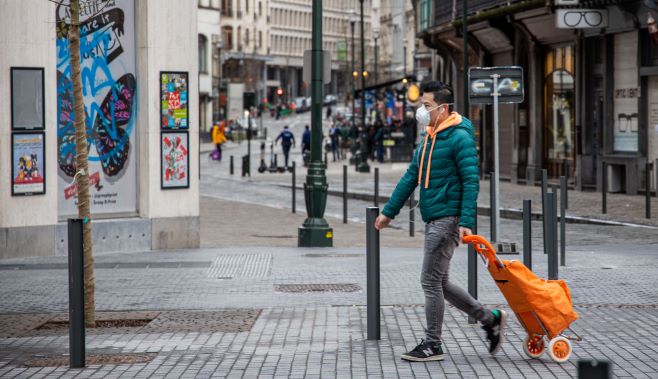A new survey from the Rustandy Center and the Poverty Lab at the University of Chicago finds that political party affiliation and trust in media are key factors determining support for continuing a series of lockdown measures during the Covid-19 pandemic.
Political party affiliation and trust in media are key factors determining support for continuing a series of lockdown measures during the Covid-19 pandemic, with personal economic impact playing only a minimal role, according to new research from the Poverty Lab and the Rustandy Center for Social Sector Innovation at the University of Chicago, in partnership with NORC.
Research from a representative sample of American households, conducted April 13-18, also found that individuals who have low confidence in the president are much more likely to favor a longer lockdown. Among our sample, 80 percent of Democrats compared to 24 percent of Republicans have low confidence in the president.
“Individuals who have low confidence in the president are much more likely to favor a longer lockdown.”
Our research is part of an ongoing longitudinal survey designed to understand the impact the Covid-19 crisis is having on American lives, with preliminary results from the first wave of the survey revealing that most respondents were supportive of (and compliant with) lockdown measures.
In the second wave, we asked more questions about support for extending lockdown measures, trust in media coverage of the pandemic, and thoughts on policies to ease restrictions and speed up the reopening of the economy.
When Should the US Government Relax the Lockdown Measures and Reopen the Economy?
Survey respondents were asked to choose what they thought was the “morally right thing to do for the government” and could pick one of three options: keep measures in place but no longer than a few more weeks; no longer than a few more months; or as long needed.
Some 77 percent of Democrats favor lockdown measures to stay in place as long as needed, while only about 45 percent of Republicans share this view. In contrast, data reveals no strong association between having lost income due to Covid-19, or fear of losing one’s job, and views about the right length of the lockdown.
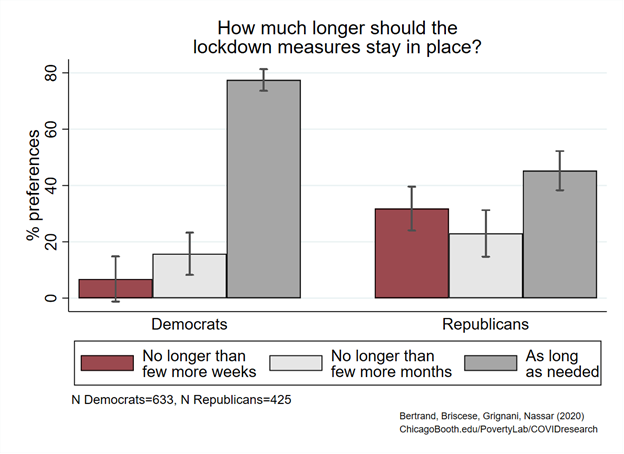
Individuals who believe the media is accurately reporting on the extent of the Covid-19 threat are much more likely to favor a longer lockdown than individuals who believe the media is exaggerating the extent of the threat. While that’s true across political parties, a much larger share of Republicans (35 percent) believe the media is exaggerating, compared to 9 percent of Democrats.
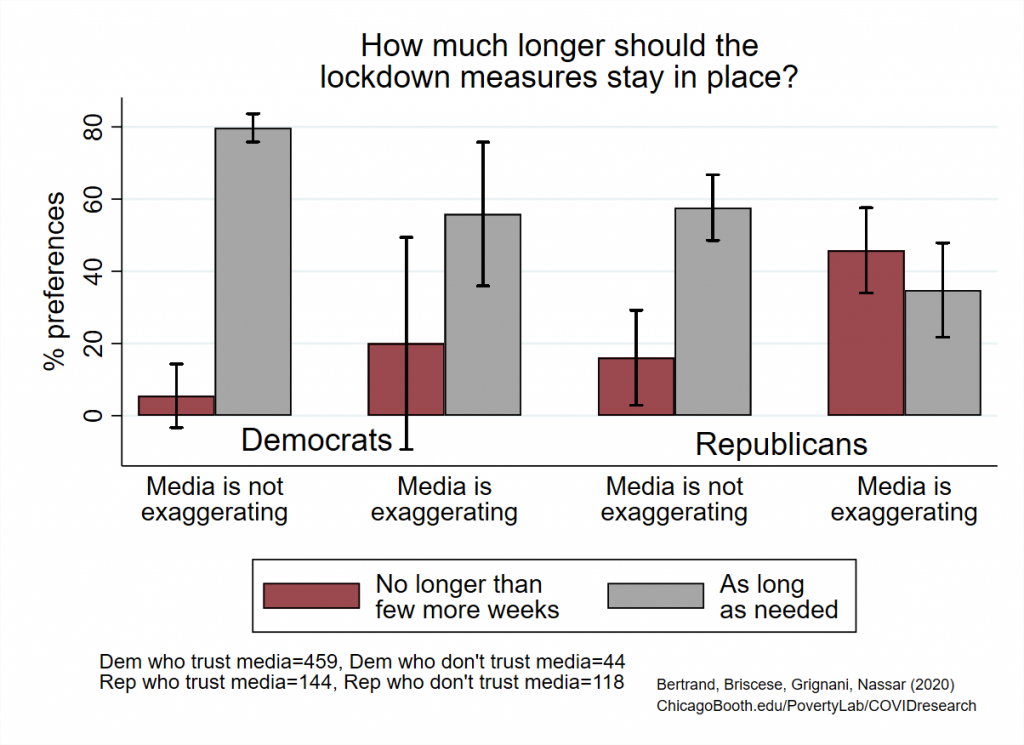
How Should the US Government Manage the Transition to Reopening the Economy?
The US federal and state governments have a number of policies available to manage the transition to reopen the economy, including mandating the use of masks, limiting the accessibility of public spaces, or implementing a geotracking app to help target citizens who came in close contact with a person who tested positive for Covid-19, similar to those implemented by South Korea and Singapore.
Our survey reveals a strong political divide in the level of support for, and the likelihood of complying with, a tracking app. Most Americans (55 percent of respondents) think that installing the app should be voluntary (53 percent of Democrats and 56 percent of Republicans, which we exclude from the figure below for legibility). About 20 percent of Americans believe that such an app should be illegal, while a lower 10 percent believe that it should be imposed on everyone.
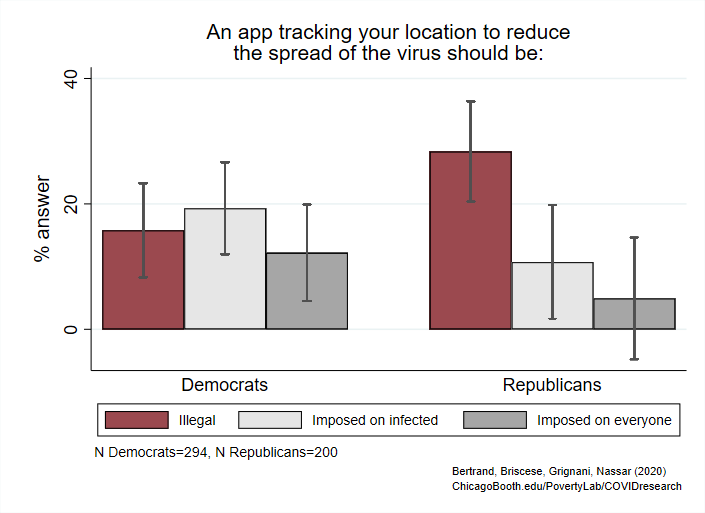
We asked respondents if they would voluntarily install this app on their own phone to help reduce the spread of the virus. Again, the data reveals a large political divide, with trust in the media’s coverage playing an important mediator of these political differences.
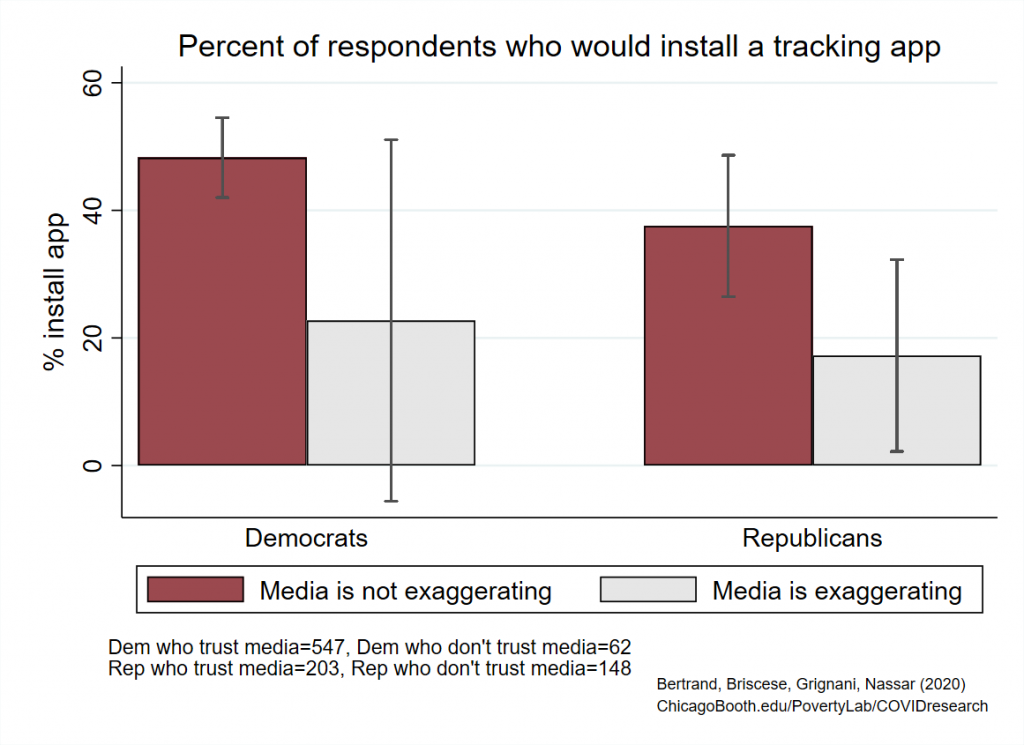
We’ll continue unpacking some of these results and post regular updates of this analysis and other relevant data at ChicagoBooth.edu/PovertyLab/COVIDresearch
Note: The survey was administered using a sample drawn from NORC’s probability-based AmeriSpeak Panel, which is designed to be representative of the US population.





